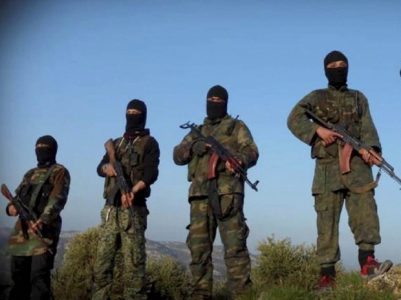
Pakistan arrests six people for collecting funds for Lashkar-e-Jhangvi and JeM
Six militants have been arrested for allegedly collecting funds for terror outfits Jaish-e-Mohammad (JeM) and Lashkar-e-Jhangvi (LeJ) in Punjab province, as Pakistani security forces have launched a crackdown on terror financing after mounting pressure from the global community.
The Counter Terrorism Department (CTD) of Punjab government arrested the six members of the proscribed organisations from various parts of the province for collecting funds for financing terrorism, CTD spokesman said in a statement.
The CTD said those arrested were collecting funds for terror financing for their proscribed organisations – JeM and LeJ. No member of any proscribed organisation will be allowed to collect funds for financing terrorism and extremism under the law of land, the CTD said in a statement.
Cases have been registered against the suspects under anti-terrorism law for committing offences of terrorism financing.
Muhammad Zahid and Irfan Ahmad of JeM were arrested from Gujranwala, and Zafar Iqbal of JeM from Rawalpindi. Similarly, Muhammad Hanzala and Hamza of LeJ were arrested from Lahore while Ijaz Ahmad of the same banned organisation from Multan.
Paris-based international terror financing watchdog FATF in June last year placed Pakistan onto its watch list in a bid to push the country to halt support for militant groups.
In February, the FATF decided to continue the ‘Grey’ listing of Pakistan for its failure to stop funding of terrorist groups such as the JeM, the Lashkar-e-Taiba (LeT) and the JuD.
The Pakistan government have arrested over 100 members of banned outfits including JeM chief Masood Azhar’s son and brother and also taken control of JeM, JuD and FIF’s properties including seminaries and mosques across the country.
The crackdown came amid tensions with India following a suicide attack in Jammu and Kashmir’s Pulwama district on February 14 by the JeM that killed 40 CRPF soldiers.
The Pakistan government has termed the action in accordance with the National Action Plan and meeting the obligations of the FATF.
Source: BS





